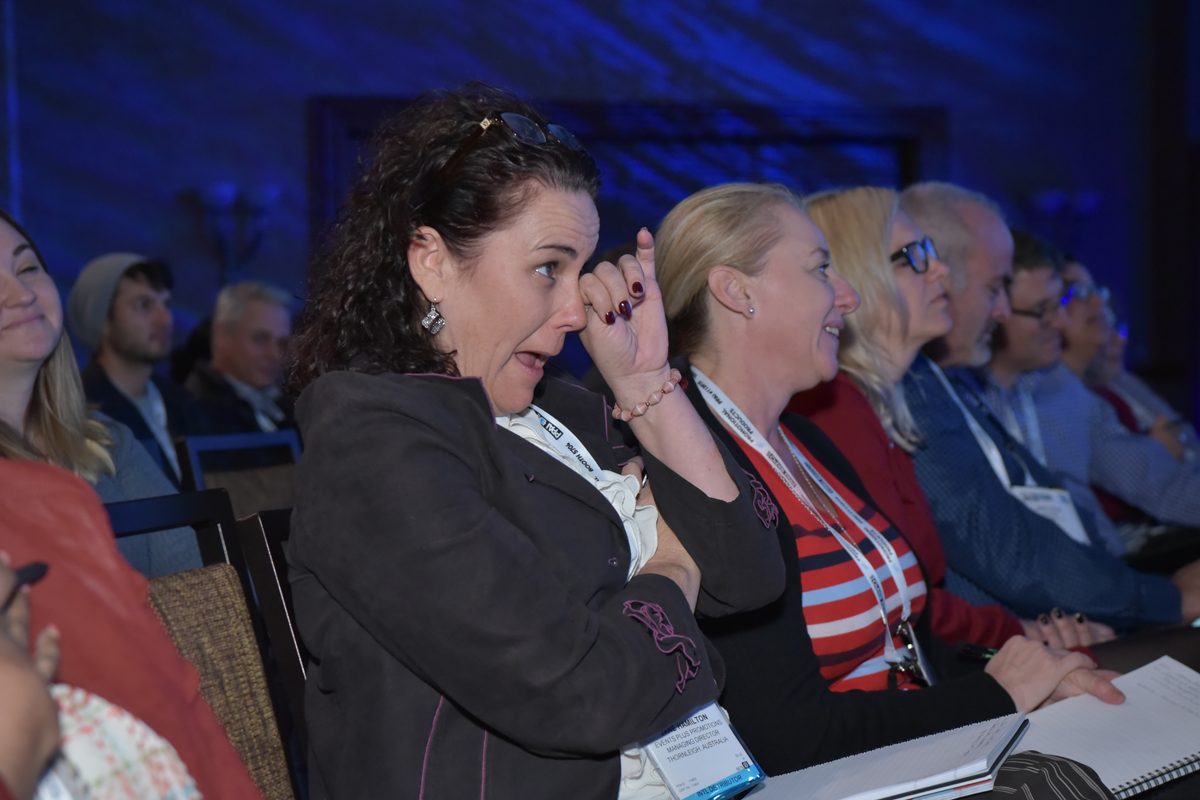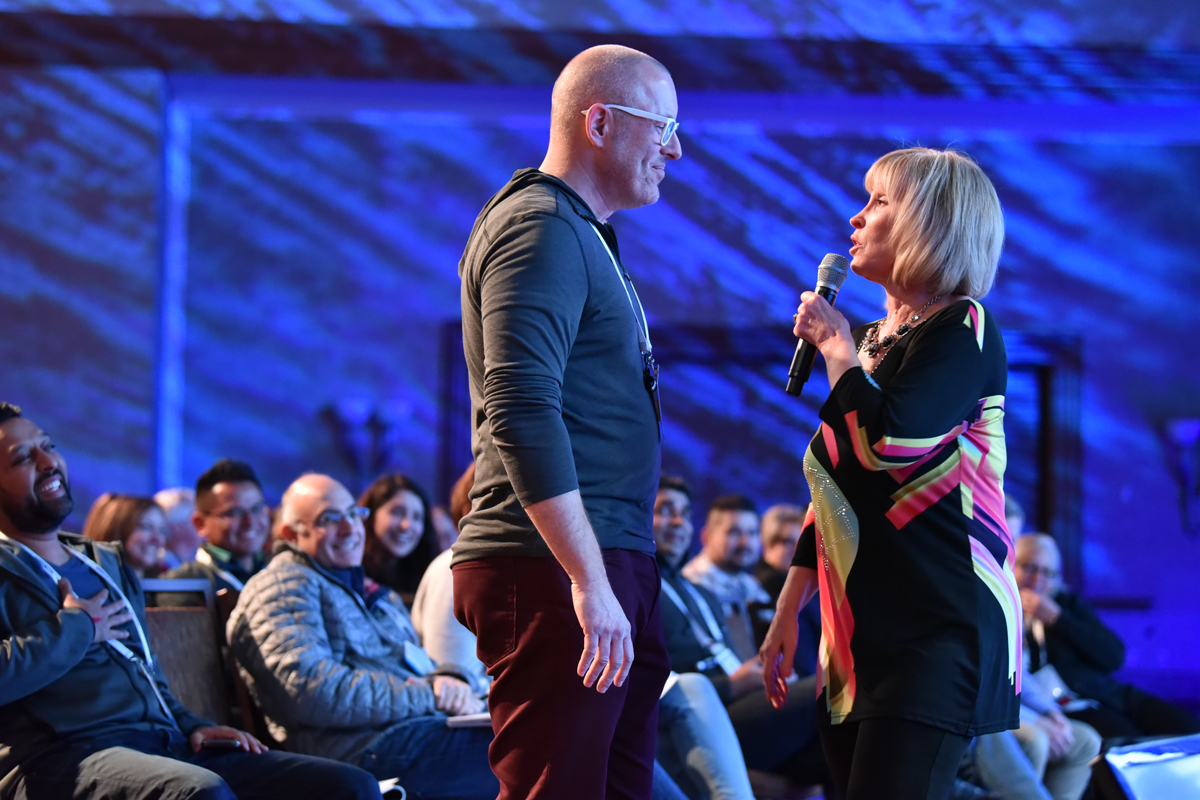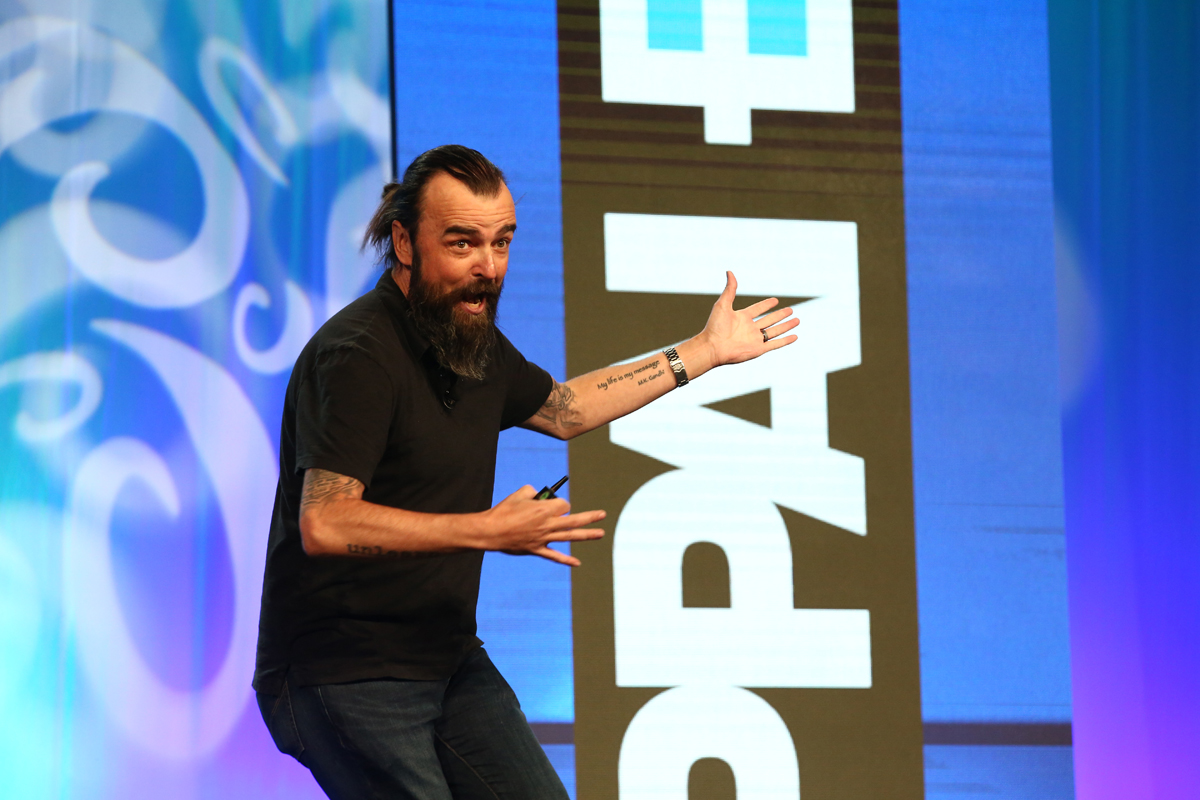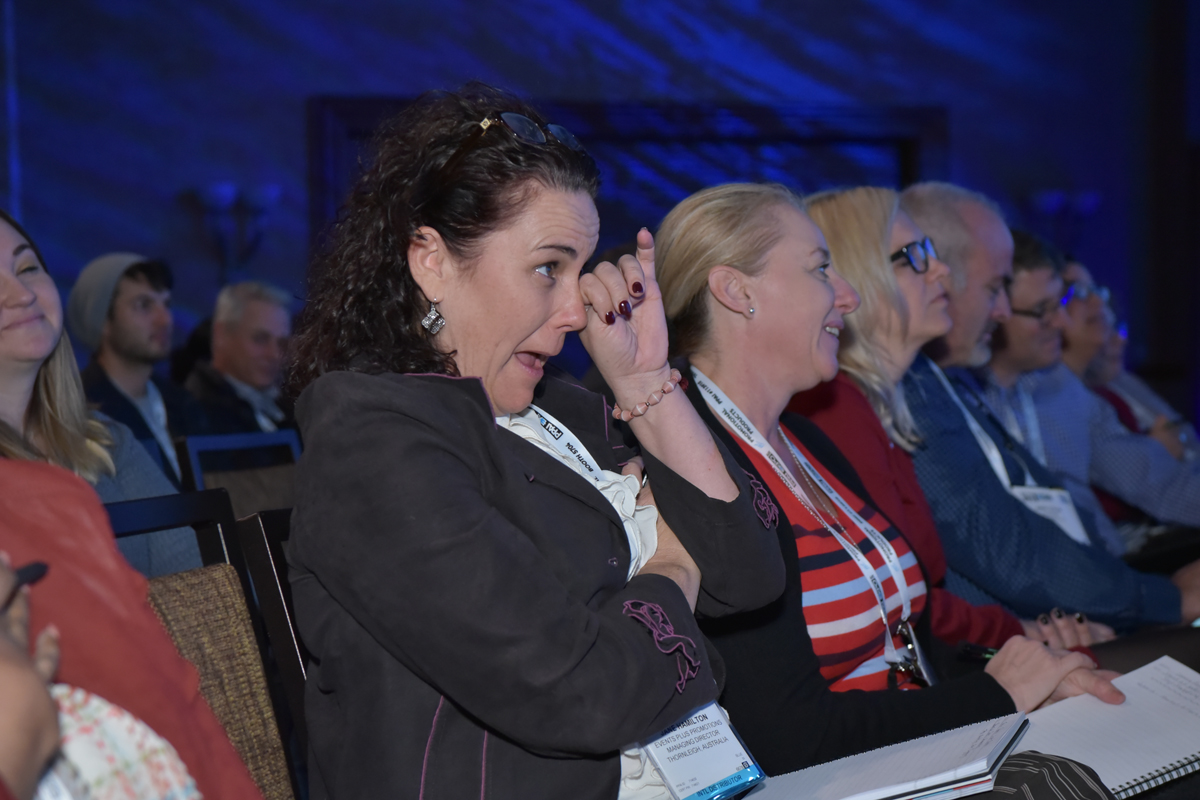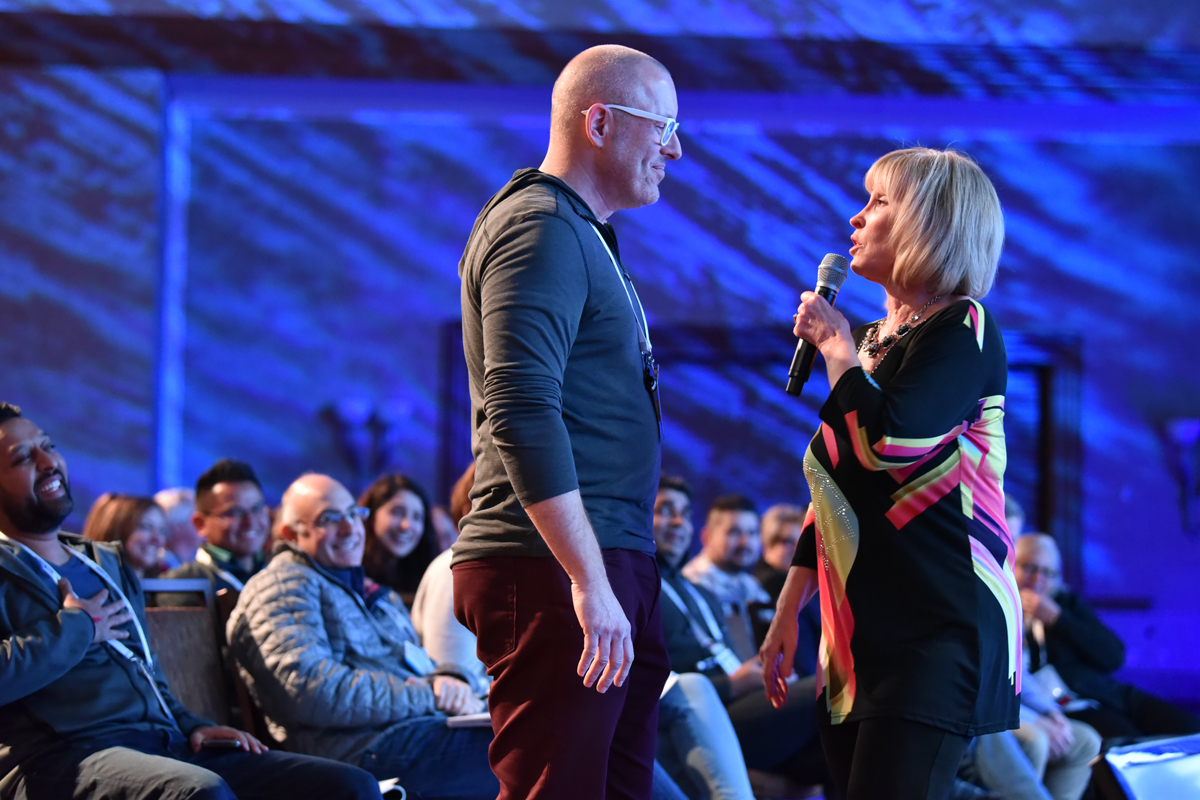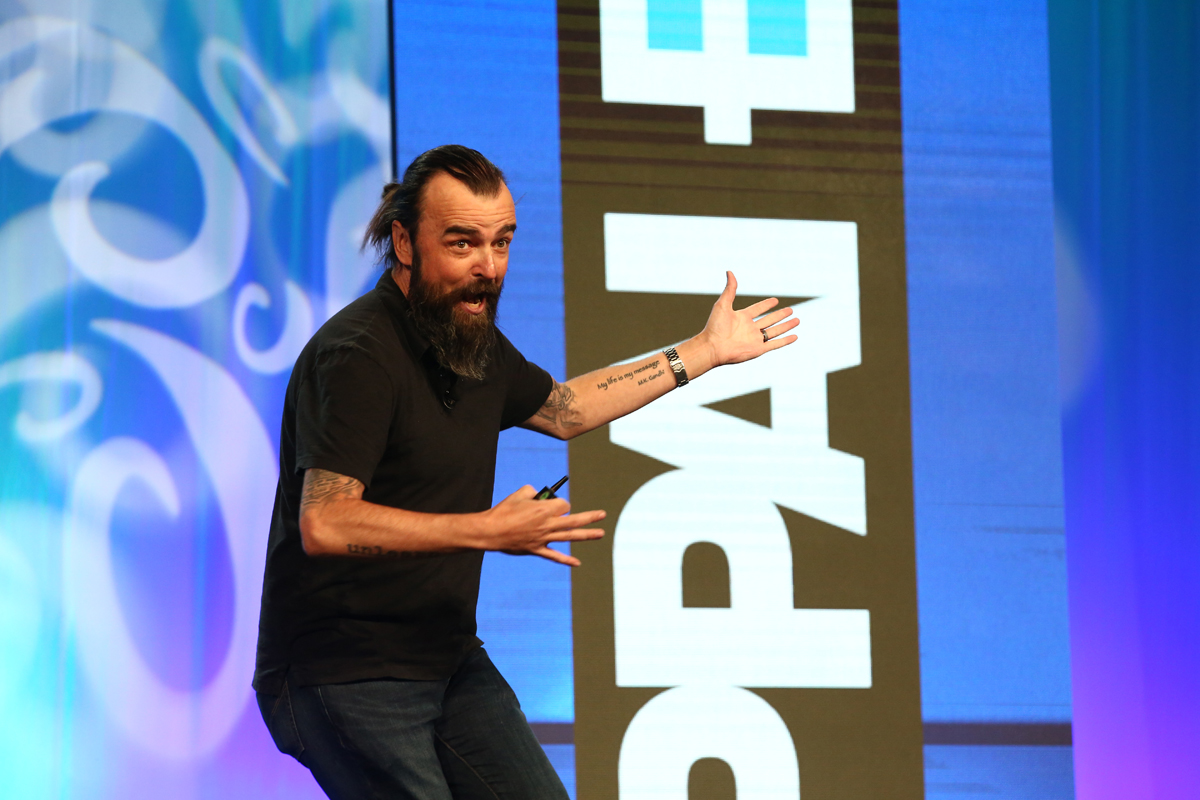Expo’s Power Keynotes Show How We Can Build On Our Differences
On Monday afternoon, education attendees were treated to two back-to-back funny, high-energy speakers at The PPAI Expo’s Power Keynotes. Connie Podesta, author and expert on the psychology of sales, leadership, change, life balance and getting your act together, and Scott Stratten, president of UnMarketing, kept a packed audience enthralled and laughing as they delivered their own unique takes on connecting with each other.
Podesta took the stage first. Near the start of her session, after billing herself as much a stand-up comedian as a therapist, she asked her audience who in the room wasn’t in sales. A modest number of hands went up. Her position, however, was that everyone is in sales and used as examples how we interact with friends, family members, coworkers and others.
To close a deal, you have to know who people are, Podesta told her audience. To do so, she presented a simple quiz that placed attendees in one of four categories. Reflecting different behaviors and expectations, she used shapes—a square, a circle, a triangle and squiggly lines—as shorthand for the categories. She ran down the characteristics of these categories—often drawing audience members up on stage for some interactive fun—and to see how they communicated.
What does this have to do with sales, she asked? Because we sell to each other and to succeed, we have to know how to talk to each other. “Remember,” she cautioned, “50 percent of the world is annoyed by you at any given moment. You have to know who people are to close the deal.”
Stratten’s keynote drew fewer audience members to the stage, but still packed plenty of energy and humor. The Canadian marketing guru, who noted during his presentation that his professional background included teaching a packaging manufacturer’s sales staff how to sell bubble wrap competitively—or as he put it, selling air, focused on how brands can manage disruption.
“Your brand,” Stratten says, “is an opinion, and it’s not the opinion of anyone inside the brand. It matters only what the outside thinks.”
An organization’s people are the best exemplars of its brand, and recognizing the differences, in this case generational, can help them survive disruption.
Disruption, Stratten says, can be defined as change without the time to resist it. Looking back over the past century or so, the pace of change has been increasingly rapidly. It took decades for consumers to adopt electricity, washing machines and microwaves. It took four years for half of all consumers to adopt smartphones and two years for them to adopt social media. “Change is happening so fast now, we can’t ride it out. We don’t have time to resist it.”
Millennials, particularly the younger Millennials, have grown up in disruption. That makes them assets to a business, as disruption is only really bad for a business when it happens externally from an organization. But, Stratten says that making it through disruption can be a painful process for a business but one that must be accepted as innovation only happens through insubordination of an existing idea or construct.



